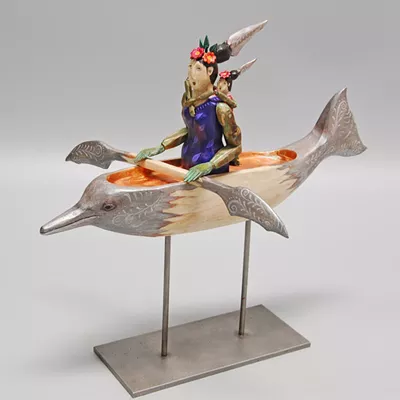
Sometimes, students need food to supplement their diets or clothing for an interview or internship. Two programs at the UA called Campus Pantry and Campus Closet assist students who need a little help.
Campus Pantry
The Campus Pantry program was designed to help students, faculty and staff with food insecurity, often caused by issues such as finances or lack of access to transportation.
The nonprofit program started in 2012.
This year, they will be offering take-one, leave-one boxes across campus, where members of the community can donate and pick up items.
Bridgette Riebe, the senior coordinator for the Basic Needs Center and Services, who oversees the Campus Pantry and Campus Closet programs, said since it started, the supplemental grocery program Campus Pantry has expanded to include a wider range of items.
At first, distributions consisted of mostly canned goods. These days, they offer more of a variety, including fresh fruits and vegetables and dairy products.
“Students are typically looking for those fresh food items or things that they can have as a quick meal, that they can cook in a microwave or toaster oven,” Riebe said.
The program caters to people of different ages, cooking abilities and needs, with options such as oats that can be used in different ways as well as pre-packaged meals that can be prepared quickly.
“A freshman living in the dorms, their access, experience and time is different than a graduate student who also has a family,” Riebe said.
“That’s another thing. People aren’t necessarily just feeding themselves. They might have children or a spouse and have the means and time to prepare a meal from scratch compared to a student who is 18 and living in the dorms. We cater very much across those boards. Also, we have students at our university who are homeless and students who are living in group homes.”
Riebe said they see students with different life situations, including those sending money back to their families in countries such as Ukraine and those who have been disowned by their family members based on their identities.
There is no income verification process. The program is open to anyone in the Wildcat community. Riebe said that this is important because food insecurity can impact anyone. Food insecurity affects 36% to 39% of students.
“It happens at any point in their academic career,” Riebe said.
“It could be meal plan money running out in March. Maybe it hits you when your car breaks down, and you just physically can’t access a grocery store.
“If we only looked at financial data of students, that’s also based on their parents. And we know that some parents don’t support their children, or their relationship could change partway through their time in college. There’s already so much stigma about food insecurity. Our job here is to provide food to students to support them, and if they are in need for any reason, they are in need.”
Campus Pantry is a student-run program, which has a small staff and over 20 undergraduate student employees. During the summer, they employ interns.
Anywhere between 30 to 50 students, staff, community members, faculty and alumni volunteer each week for distributions.
Participants can choose from items such as yogurt, cheese sticks, eggs, sour cream, apples, bananas, rice, cans of chicken or tuna, peanut butter, spam, cottage cheese, oats, potatoes, onions and cloves of garlic. There are also pre-packaged meal options.
Each week, the program purchases many of its perishable dairy items, produce and other items through the student union’s wholesale ordering system. They also receive donations from individuals and businesses.
The number of spices available has increased over the years and includes items such as salt, pepper, garlic powder, cumin, cinnamon, turmeric and curry powder.
The program also receives vegetables such as bell peppers, bok choy, kale, jalapeños, cucumbers, tomatoes, eggplants and lettuce from several UA facilities including Biosphere 2, the Rooftop Greenhouse and Controlled Environment Agriculture Center greenhouses at East Roger Road and North Campbell.
Through Boxing Up Hunger, a partnership program with Arizona Student Unions’ Arizona Catering Company, they offer food that isn’t served at banquets and events, such as sandwiches, fajitas and pasta and rice dishes. These items are boxed up and labelled.
The pantry accepts donations of hygiene and laundry products such as feminine products, hand soap, body wash, shampoos, conditioners, laundry soap pods, dryer sheets and deodorant.
Recipients can take one item each week. Riebe said that the program’s hygiene product offering has increased over the last few years, as they have seen a greater need.
The pantry program is funded through the university, grants, alumni and community member donations and corporate donations.
They run on a client choice model, which means they are half grocery store/ half food bank. Students can choose items they want for free, but they are limited in the amount.
“When students come in to ‘shop,’ they have six points worth,” Riebe said.
“Everything is labelled based on what the monetary value is from a quarter of a point up to two points. They mix and match the items that are really beneficial for them, and they check out with us.”
This model allows students to shop for items that fit within their specific diets. They can skip certain sections if they don’t eat certain types of meat, have gluten restrictions or allergies or are vegetarian or vegan.
This year, students will be limited to two visits per week. This is a change from previous years, when they were able to go to all three distributions. They now receive more points during each visit.
Riebe said it makes more sense for students to visit fewer times and be able to get more during each visit.
“I don’t grocery shop three days a week. That’s not the best way to do it. How can we expect that from them too? That’s why we are changing that around,” Riebe said.
A mix of graduate and undergraduate students use the program. They also see several international students.
Riebe said last year, they had around 51,000 visits from over 4,200 people.
During the fall, Campus Pantry will be open 2 to 6 p.m. Tuesdays, and 11 a.m. to 3 p.m. Wednesdays and Fridays in the Sonora Room, on the first floor of the SUMC.
Students should bring their Catcard and a bag to the distributions.
Participants receive free glass jars and spice containers, which they can bring back to fill for distributions. They can also bring their own jars, containers and bags for bulk items such as rice, oats, lentils, sugar, flour and pasta.
Inquiries can be made to uofacampuspantry@gmail.com.
Campus Closet
Campus Closet offers new and gently used business attire and casual clothing to UA students, faculty and staff.
Recipients often use the clothing for school presentations, internships, interviews and daily wear.
Riebe said this program helps to remove barriers that students, staff or faculty have to certain educational or career opportunities.
“Some students, when they are packing for their first year of college, they may have one nicer outfit. But I think a lot of students are caught off-guard when you are giving class presentations, and there are requirements for you to be in a full suit,” Riebe said.
“Another one that we have seen quite a bit that I never expected is that students have one outfit. When you have an internship, you need more than one outfit…We see students who are employed who need black pants or khaki pants.”
Riebe said many students who use Campus Closet need business attire that same day or week, and they may not have the time or transportation access to get to a store that sells attire like suit jackets.
Participants are allotted four points per each one-week visit. Point levels are given to certain types of clothing, such as bags, purses, scarves, socks, jewelry, hats, pants, shirts, shoes, blazers, dresses and jackets.
Riebe said the program sees around 150 to 200 individuals each week.
They take different types of adult clothing items, in a range of sizes. They do ask for certain items, such as underwear, socks and white undershirts, to be brand new and for clothing to be washed before being donated.
“It is anything from casual to business wear, jeans, UA T-shirts, suit jackets, ties, shoes. Shoes are a big one. If we need anything, we need shoes. We have two fitting rooms, so students can try items on,” Riebe said.
All of the items come through donations from community members, organizations and companies.
Campus Closet is open from 3 to 5 p.m. Tuesdays and 2 to 4 p.m. Wednesdays on the first floor of the student union in the Sonora Room.
For inquiries, contact ua.campuscloset@gmail.com.
Donations for Campus Closet and Campus Pantry can be dropped off at the basement level of the student union or the SUMC info desk across from the UA bookstore.
For information on the two programs, visit www.campuspantry.arizona.edu and www.campuscloset.arizona.edu.











